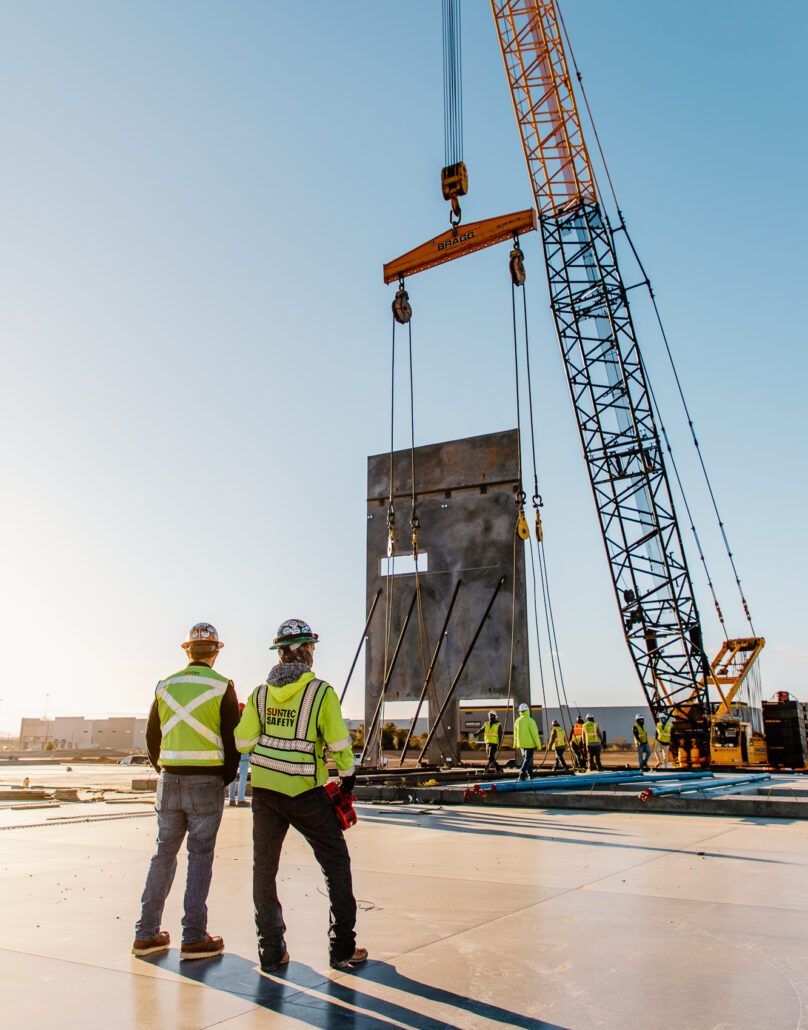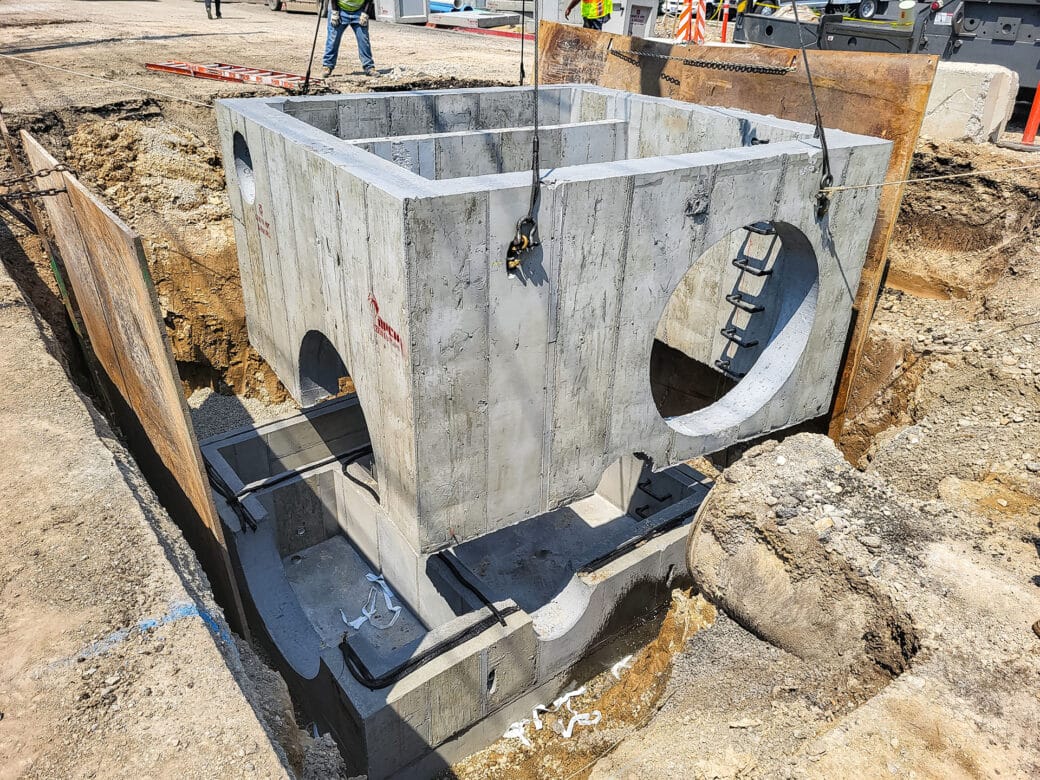A Deep Dive Into Concrete Performance: Exploring West Coast General Engineering Concrete’s Core Advantages
A Deep Dive Into Concrete Performance: Exploring West Coast General Engineering Concrete’s Core Advantages
Blog Article
The Necessary Role of Concrete Foundation in Structural Integrity and Longevity
When it pertains to constructing a residential or commercial property, the structure is extra crucial than you may believe. Concrete structures provide unequaled toughness and resilience, ensuring your structure can stand up to numerous ecological challenges. Without a strong base, you risk prospective problems like changing or cracking, which can compromise safety and value. Understanding the nuances of concrete foundations could be the key to protecting your investment for several years ahead. What should you consider following?
Recognizing the Relevance of Concrete Foundations
Concrete foundations are vital to the total security of any type of framework, as they offer the vital support required to stand up to numerous tons and environmental problems. When you think of constructing a home or a commercial room, the foundation is the first point you should take into consideration. It functions as a barrier against dampness, safeguarding your residential property from water damage. A well-placed concrete structure also stops settling and shifting, which can cause cracks in wall surfaces and floors. You'll wish to assure that the foundation is effectively designed and strengthened, as this influences the durability of your structure. Additionally, a strong structure can enhance power efficiency by reducing air leaks. Bear in mind, overlooking the value of a concrete structure can bring about pricey repairs down the line. Investing in a quality foundation upfront is crucial for the stability and sturdiness of your framework.
Benefits of Concrete Structures for Architectural Integrity
While several elements add to a structure's structural integrity, concrete foundations use unmatched toughness and toughness. You'll appreciate that concrete can withstand extreme climate condition, standing up to both moisture and temperature level fluctuations. This resilience suggests your structure is less most likely to experience fracturing or moving gradually, which can jeopardize its safety.Additionally, concrete's integral weight gives a strong base, stopping activity throughout natural occasions like earthquakes or floods. When you choose a concrete foundation, you're also choosing low maintenance; unlike timber, it won't rot or attract insects, conserving you money and time in repairs.Moreover, concrete's fire resistance uses included safety and security, ensuring your framework can sustain heats without significant damage. In general, investing in a concrete structure indicates you're prioritizing the long-lasting stability and integrity of your building, making it a sensible option for any building job.
Typical Sorts Of Concrete Foundations
When it involves developing structures, understanding the typical sorts of concrete foundations can help you make notified options for your job. The most prevalent kinds consist of slab-on-grade, crawl space, and complete basement foundations.A slab-on-grade structure is an easy, economical option, where a thick concrete slab is put directly on the ground. This type functions well in cozy environments, as it minimizes warm loss.Crawl area foundations boost the home slightly over ground, enabling ventilation and access to plumbing and electric systems. This style can assist avoid wetness issues.Full cellar structures provide additional living or storage space while giving excellent architectural assistance. They call for more excavation and are typically utilized in chillier climates to stop frost heave.
Aspects to Take Into Consideration When Creating a Concrete Structure

Finest Practices for Putting Up Concrete Foundations
When you're installing a concrete foundation, proper site preparation is vital to ensure security (West Coast General Engineering commercial concrete). You'll likewise require to understand support methods to improve strength and toughness. Lastly, don't ignore the healing process, as it plays a basic duty in achieving a solid foundation
Site Preparation Relevance
It might appear straightforward, appropriate website preparation is important for guaranteeing a strong and durable concrete structure. Start by removing the location of any kind of debris, vegetation, or organic product that might compromise the structure's stability. Next, assess the dirt kind and compaction; you may require to dig deep into or include products to develop a steady base. Level the ground to assure also weight circulation and prevent working out concerns in the future. Setting up correct drainage systems is additionally vital to stop water buildup, which can compromise the foundation over time. Ultimately, define the structure's dimensions precisely to direct the pouring process. By adhering to these actions, you'll establish the stage for an effective concrete foundation that stands the test of time.
Support Methods Explained
When the website is properly prepared, the next action in assuring a strong concrete foundation entails executing effective reinforcement techniques. You must start by utilizing steel rebar, which offers tensile stamina and aids stop fracturing. Lay the rebar in a grid pattern, making certain it rises utilizing spacers to maintain proper insurance coverage. Furthermore, consider making use of wire mesh for added support, especially in areas based on heavy tons. Do not forget to link the rebar intersections securely with wire. For bigger structures, fiber reinforcement can improve sturdiness, reducing the risk of shrinkage splits. Always adhere to neighborhood building codes and standards to make sure compliance. By using these reinforcement methods, you'll substantially boost your foundation's stamina and long life, laying a solid foundation for your framework.
Treating Process Fundamentals
To ensure your concrete structure remedies effectively, it's important to preserve ample wetness and temperature level conditions instantly after putting. Begin by covering the surface with a damp burlap or plastic sheet to keep wetness. This maintains the concrete moisturized, preventing cracks and look these up ensuring stamina. You should likewise keep an eye on the temperature level; optimal healing problems are between 50 ° F and 90 ° F. If it's also hot, mist the surface area consistently to stop quick dissipation. For winter, take into consideration making use of shielding coverings to preserve heat. Go for a treating duration of at the very least seven days, as this is crucial for ideal strength development. By complying with these best techniques, you'll boost your structure's sturdiness and long life, guaranteeing architectural integrity for several years to find.
Upkeep of Concrete Structures for Durability
To keep your concrete foundation solid and long-term, routine examinations are important. You need to additionally guarantee effective drainage solutions remain in area to stop water damage. If you detect any kind of fractures, addressing them immediately will save you from larger issues down the line.

Normal Inspections and Evaluations
While regular examinations and analyses may appear like a task, they're crucial for keeping the stability of your concrete foundation. By consistently examining for fractures, shifts, or indications of wear, you can catch prospective concerns prior to they intensify into expensive fixings. Search for any kind of water merging around the structure or unusual settling, as these can signal underlying problems. It's likewise smart to check any adjustments in your home's structure, like doors that stick or windows that don't open efficiently. Maintaining a document of your inspections assists track changes over time, permitting for proactive upkeep. Eventually, these analyses ensure your foundation stays stable, supporting the long life and safety and security of your entire structure. Don't ignore this essential element of homeownership!
Efficient Drain Solutions
Routine inspections can expose problems like drainage problems that might jeopardize your concrete structure's stability. To protect against water build-up, guarantee your gutters and downspouts direct water away from the structure. Installing learn the facts here now French drains pipes can properly reroute surface and groundwater, lowering pressure on your foundation walls. Furthermore, rating the dirt around your home aids guarantee that water moves away, as opposed to pooling near your foundation.Consider making use of sump pumps in areas prone to flooding, as they proactively remove excess water. On a regular basis inspect for clogs in drainage systems and clear them promptly. You'll secure your foundation's integrity and longevity by taking these proactive actions. Bear in mind, reliable water drainage options are necessary for preserving a strong, sturdy concrete structure.
Prompt Crack Fixes
When you discover splits in your concrete foundation, resolving them without delay is necessary for keeping its longevity. Small fractures can promptly evolve right into bigger concerns, jeopardizing the architectural stability of your home. Regularly inspect your foundation for indications of damage, such as straight or upright cracks. If you spot any, don't wait-- fix them immediately. You can make use of epoxy injections or more helpful hints concrete patching substances, which are effective for securing cracks. Always adhere to the producer's directions and consider seeking advice from an expert for considerable damage. Keep in mind, timely repair work not just enhance your structure's sturdiness yet also save you cash over time by avoiding much more extensive repairs down the line. Stay aggressive, and your structure will certainly remain strong and protected.
Dealing With Typical Issues With Concrete Structures
Concrete structures can encounter different problems gradually, making it crucial to determine and address them immediately. One of one of the most typical issues is breaking, which can occur as a result of temperature level changes or resolving soil. If you notice fractures, it's necessary to examine their size and depth; little splits can often be secured, while bigger ones might require expert evaluation.Water invasion is one more significant worry. Excess wetness can lead to mold development and architectural degeneration. Warranty appropriate drain around your structure to alleviate this risk. Furthermore, try to find indications of shifting or bowing walls, as this can show underlying issues with your foundation's stability.Regular inspections are basic to capture these problems early. If you spot any concerning indicators, don't wait to consult a structure professional. By staying positive, you can preserve the stability and durability of your concrete structure, ensuring your home continues to be safe and secure.
Often Asked Inquiries
How Does Soil Type Influence Concrete Foundation Performance?
Dirt kind greatly influences concrete foundation efficiency. If you have actually obtained extensive clay, for example, it can create shifting and cracking. Sandy soil could cause settling. Understanding your dirt assists ensure a steady structure.
Can Concrete Foundations Be Fixed if Damaged?
Yes, you can fix broken concrete foundations. Depending upon the level of the damage, methods like epoxy shot or piece jacking can restore security. It's finest to speak with a specialist for efficient solutions.
What Is the Common Life-span of a Concrete Structure?
A concrete structure usually lasts 30 to 100 years, depending upon factors like soil problems, environment, and maintenance. You'll wish to maintain an eye on it to ensure it continues to be healthy throughout its life expectancy.
Are There Alternative Products to Concrete for Foundations?
Yes, there are alternatives to concrete for structures, like steel, wood, or even recycled materials. Each alternative has distinct benefits and downsides, so you ought to consider your task's specific requirements when selecting the ideal material.
How Does Climate Impact Concrete Foundation Resilience?
Environment substantially impacts concrete structure sturdiness (West Coast GE Concrete contractors). Severe temperature levels, dampness, and freeze-thaw cycles can compromise the material, resulting in cracks and architectural concerns. You should think about regional environment problems when intending your foundation to ensure long-lasting efficiency
Report this page